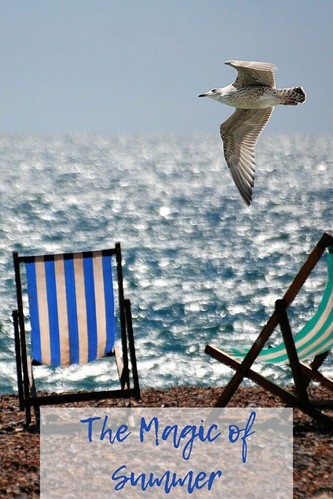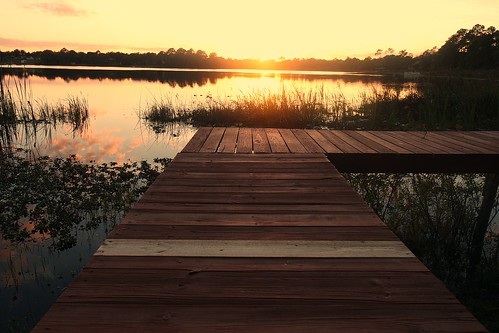As a kid (and as a teacher), I’d count the days till summer, the days between spring break and Memorial Day weekend and then the onslaught of everything that made that last month of school seem like it simultaneously went as quick as lightning and as slow as molasses. Today, my best friend’s daughter is in the final stretch of her sophomore year, and the middle child is quite literally counting the days till that grand bus ride that will take her to sleep away camp. One gets to hang with her friends and spend her days at her happy horse barn, while the other lives (like I did) for those 2 months of utter bliss in the welcoming warmth of her summer home. And still another of my favorite tweenagers is about to head off on an epic adventure on another continent, playing the sport that makes her heart soar.
Whether you’re spending my favorite season searching for tadpoles, playing in the dirt, exploring mountains, riding bikes, jumping in the waves, hanging in an RV, traveling the world, staying up late, making new friends, having picnics every night, or sleeping till noon, there’s something special about summer.
My two favorite days of the year are my birthday and the summer solstice. Those two dates flank my favorite season, and every day in between is considered awesome. Sleep away camp happens then, beach days happen then (we even got married in that time period); it’s seriously my favorite.
However, the world of education has shifted, and that 2-month break from school isn’t always looked upon as a good thing. Today, there are year ‘round schools that handle those breaks differently, there are online courses that take place over various times of the year, and we know from experience that not all classrooms have walls. More and more people have come to realize that education doesn’t only come from books, school is not only a 10-month scenario, learning happens in a variety of forms and platforms, and that travel is one of the world’s greatest teachers.
How are you planning to spend your magical summer?

How can we learn while playing?
Do you remember your summer experiences? As a child, were you able to tell the difference between the dirt under your fingernails and the chocolate cupcake you ate in the park? Did you catch fireflies, learn to fish, go on road trips, or play lawn games with the neighborhood kids? Did you hang with family, camp by the lake, go to summer camp, or make up exciting adventures all day long?
Play has long been a conversation amongst educators. Little ones learn through play. They find their voice, learn team-building skills, problem-solve, and engage in constant curiosity. Why does that have to change when we grow up? One of my former high school students is now married with two kids of her own, and one of the best compliments she ever gave me was, “I never thought I was learning anything in your class…but I always had fun.” Yet, this student’s grades continued to increase, her participation soared, she became a class officer as well as a mock trial guru, and has gone on to become a successful attorney and kind participant in the human race. Whether she knew it or not, she was learning each and every moment in that classroom and beyond those walls.
Campers often later become counselors, students might become teachers, little ones who played in the playground go on to play and win championships on the soccer field, and kids who played on the beach might grow up to become lifeguards, firefighters, sand sculpting artists, or more. The sand box sharer might be a social worker, the kid who ran around the playground for hours might own his/her own gym, the kid on the block who organized games might today organize events, the little one who put together the best pretend kitchen might now run one of their own, and the creative child could today be an award-winning photographer…or anything else for that matter.
Oftentimes, we learn the most through play and those lessons stay with us for decades to come.
Instead of swatting away that playtime, encourage it.
Whether you’re five, fifteen, thirty-five, or sixty-five, engaging in playtime leads to incredible experiences, marvelous memories, broader minds, and healthier lives. Playtime might mean something different as we continue to grow, but it doesn’t ever have to disappear. We may have to grow older, but we don’t really ever have to grow up. Why not find a way to continue that playtime in appropriate ways throughout our lives? The little kid in us will thank us.
How do we instill a love of curiosity?
A few nights ago, one of the late night talk show hosts had Bill Nye the Science Guy on his show. I can remember, when my brother was little, we watched as experiments exploded, cool graphics flew across the screen, and, whether messy or otherwise, there was a lesson at the end of the story.
It encouraged curiosity.
We’d then go outside and wait to watch caterpillars turn to butterflies, fireflies light up the night sky, and discover just how long to hold a magnifying glass in the direction of the sun before it would burn a hole in a tiny piece of cloth. Today, kids can learn new languages from listening to podcasts, engage in science by watching YouTube videos, and elevate their cooking skills through reality television shows. We can travel without leaving our couch, sift through art collections from the comfort of a hammock, and learn how to grow our own food through social media.
Curious children become curious students who later go on to become curious adults. Sure, that ‘why’ can get old after your three-year old has asked it to you for the umpteenth time in an hour, but that curious child might one day go on to ask questions at a higher level, engage in discourse yet otherwise untouched, and set out on a course to change the world…all because they continued to be curious, continued to try to find a way, and continued to collaborate with others who think, "let’s try it this way."

How do we encourage learning?
Have patience, foster conversation, cultivate enrichment, create a safe and open place for discussion, listen to different opinions, and embrace travel! These are only a few ways to encourage learning at any age.
Learning doesn’t begin when a child gets to school; it starts far before then. It could be as simple as wanting to learn how to help make breakfast, what words mean on a children’s television program, or why bees land on certain flowers. Perhaps it’s why do we eat a certain food on a particular holiday, why do puppies like to chase their tails, how high is the tallest mountain, or why are raindrops round?
Travel encourages learning even when the learner isn’t interested. Sometimes you need to use a map to figure out where to go. Sometimes you need to figure out how to say something in another language in order to chat with a new friend. Sometimes you need to learn how to research a summer expedition when there’s a place to which you feel drawn.
The learning is in the doing, and while the ‘I want to do it myself’ conversation ebbs and flows from toddler stage to adulthood, we all have the capacity to learn, to want to figure out something new, to work through trials and errors, and to become more learned individuals.
Encourage those questions, involve children in research, provide access to tools, and give them a chance to find out something new. You never know, perhaps your child will be one of the world’s next change-makers.

Where do we go from here?
Teachers often call their students ‘my kids’…because for all the time they’re in their classroom or their life, they’re just that–their kids. We consider ourselves lucky to continue to have a relationship with those students as they meander their way through their educational career, experience life’s milestones, and deal with the highs and (unfortunate) lows of the world. Education doesn’t end when a child graduates. Whether that’s from homeschool, preschool, primary school, secondary school, or graduate school, learning continues.
It’s up to each and every one of us to continue to encourage that learning. Interact with others different than yourself, read varied literature, learn about others’ backgrounds, try different foods, blow the boundaries off that comfort zone, and encourage travel.
See the world from someone else’s perspective, put yourself and your children in situations where you aren’t the majority, and actively listen to the stories of others.
Be an active participant in the world and encourage your children/students to do the same.
If we can help others find and use their voices, listen intently, stay curious, travel, think broadly, and be kind and benevolent global citizens, our children and students will reap the rewards and will without question make the world a better place.
Use that magic of summer wisely…the next generation is watching.

Stacey Ebert, our Educational Travels Editor, is a traveler at heart who met her Australian-born husband while on a trip in New Zealand. Stacey was an extracurricular advisor and taught history in a Long Island public high school for over fifteen years, enjoying both the formal and informal educational practices. After a one year 'round the world honeymoon, travel and its many gifts changed her perspective. She has since left the educational world to focus on writing and travel. She is energetic and enthusiastic about long term travel, finding what makes you happy and making the leap. In her spare time she is an event planner, yogi, dark chocolate lover, and spends as much time as possible with her toes in the sand.
Check out her website at thegiftoftravel.wordpress.com for more of her travel musings.
